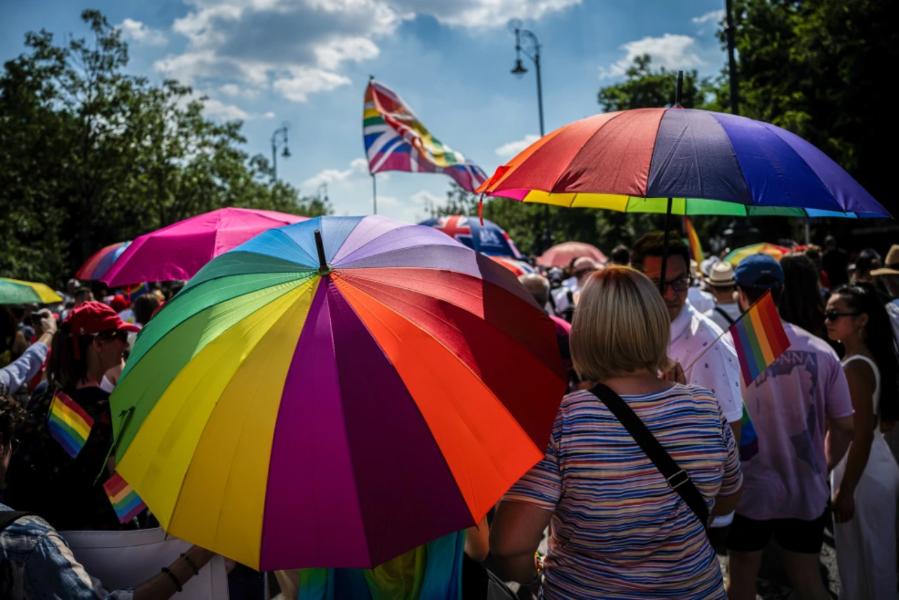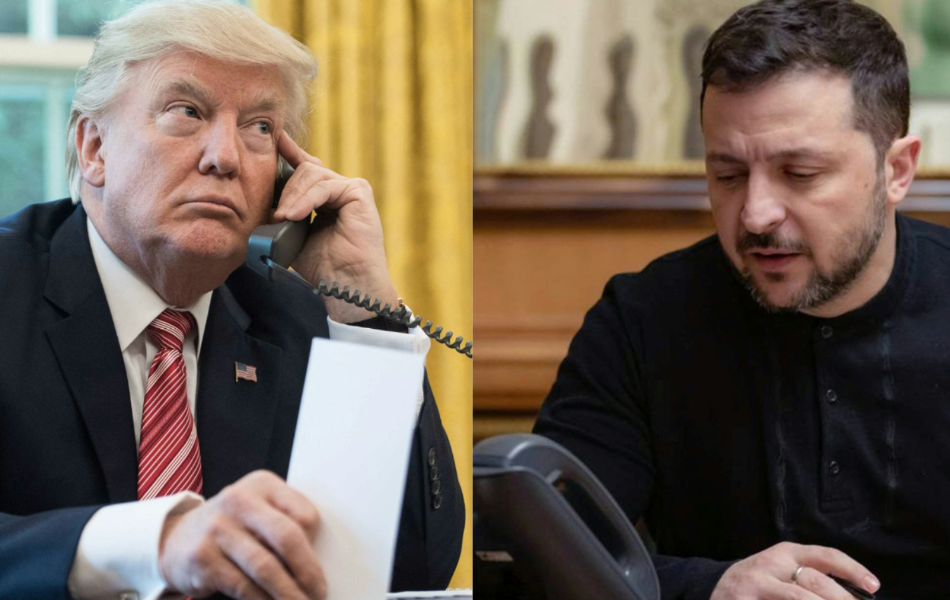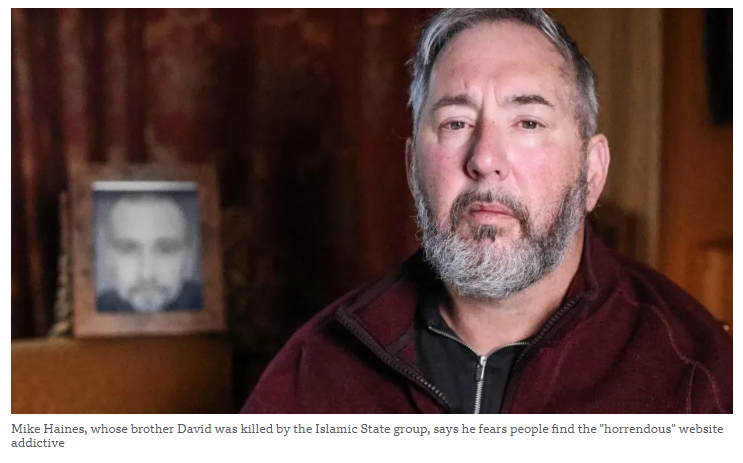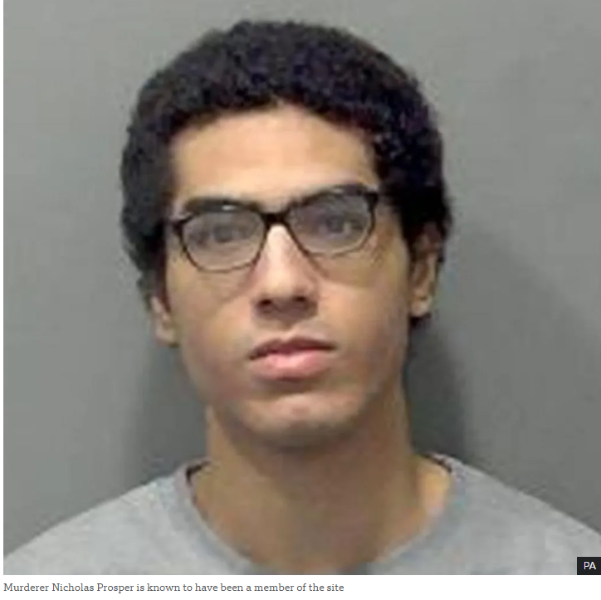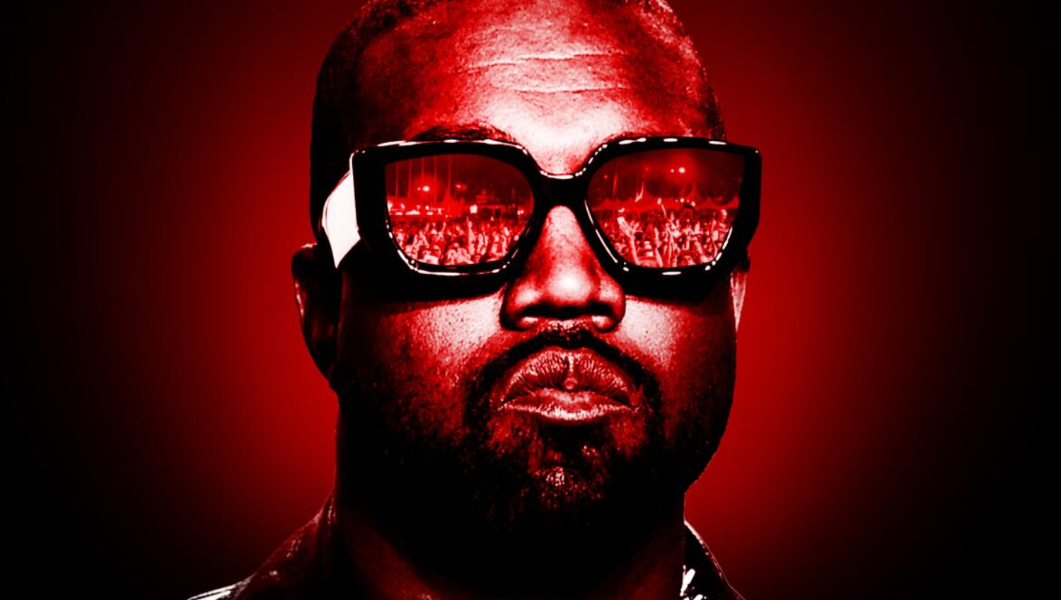-
Posts
10,734 -
Joined
-
Last visited
Content Type
Events
Forums
Downloads
Quizzes
Gallery
Blogs
Everything posted by Social Media
-
@bubblegum a flame has been removed. If you can't discuss without personal attacks then perhaps better not to comment
-
A pure trolling post has been removed.
-
Court documents related to Prince Harry’s immigration to the United States have been released, but they contain heavy redactions due to concerns about potential media harassment. The files, made public following a Freedom of Information Act (FOIA) request by the Heritage Foundation, a conservative think tank, were ordered for release by Judge Carl Nichols. The Heritage Foundation initially sought access to Prince Harry’s immigration records after he disclosed past drug use in his memoir, Spare, in which he admitted to taking cocaine, marijuana, and psychedelic mushrooms. The organization questioned whether he had received special treatment when he entered the U.S. in 2020, as admitting to past drug use can sometimes be a barrier to obtaining a visa. Judge Nichols ruled in September 2024 that there was not a strong enough public interest argument to justify the full disclosure of the Duke’s immigration records. Despite the Heritage Foundation’s attempts to challenge this decision, the judge maintained that releasing more details would not serve the public interest. The newly released documents reaffirmed this stance, stating: “To release his exact status could subject him to reasonably foreseeable harm in the form of harassment as well as unwanted contact by the media and others.” The documents further explained that there was a “potential of harm in the form of harassment if his exact [REDACTED] is revealed. Thus, there is significant privacy interests involved in the records.” They also dismissed the Heritage Foundation’s claim that the records should be released to maintain public confidence in the U.S. government, stating: “Plaintiffs have not established public interest, as defined by the FOIA, in disclosure of the records. Plaintiffs allege that the records should be disclosed as public confidence in the government would suffer or to establish whether the Duke was granted preferential treatment. This speculation by plaintiffs does not point to any evidence of government misconduct.” The Heritage Foundation has argued that the Duke may have concealed his past drug use when applying for his visa, which could have rendered him ineligible. They claimed that his answers regarding drug history should be made public to determine whether immigration laws were applied fairly. In February, former U.S. President Donald Trump weighed in on the controversy, telling the New York Post: “I’ll leave him alone.” He added, “He’s got enough problems with his wife [Meghan]. She’s terrible.” The Duchess of Sussex has previously criticized Mr. Trump, calling him “divisive” and a “misogynist.” Despite continued scrutiny, the latest court decision suggests that Prince Harry’s immigration status will remain largely private, with the redacted documents failing to provide the answers sought by the Heritage Foundation. Based on a report by The Telegraph 2025-03-20
-
An Egyptian national who arrived in Britain on a small boat is accused of orchestrating a £12 million people-smuggling operation, transporting over 3,700 migrants from Africa to Europe. Ahmed Ebid allegedly arranged for dangerously overcrowded fishing boats to carry migrants across the Mediterranean, charging them an average of £3,700 per journey. Southwark Crown Court heard that Ebid reached the UK in October 2022 via a small boat crossing. Within days of his arrival, from a home provided to him in Isleworth, west London, he began arranging crossings from Libya to Italy. Over the next six months, he coordinated seven such journeys, underscoring the role UK-based smuggling networks play in facilitating illegal migration into Europe and eventually across the English Channel. The boats used were small, wooden fishing vessels described as “death traps,” each carrying hundreds of migrants. One of the boats reportedly held 700 people. Calls for emergency rescues were made to the Italian coastguard as these unsafe boats became stranded at sea. The National Crime Agency (NCA) placed a covert listening device in Ebid’s home, capturing conversations between him and his contacts in Libya. These recordings revealed how he managed the crossings, maintained contact with the boats, and dictated operational decisions. Prosecutor Frederick Hookway stated that Ebid’s Facebook profile referred to him as “Captain” and gang members addressed him as “boss” in their communications. In one recorded conversation, Ebid was heard warning: “The most dangerous trip to Europe is this trip, be aware.” In another, he issued strict instructions prohibiting mobile phones on the boats, saying: “Phones is not all allowed … [they] will be killed, thrown into the sea.” He also used coded language to discuss the boats, referring to them as “cars.” In one exchange, he said: “I buy a car and load it for my own benefit. There is nothing wrong with that, all my own capital.” Ebid allegedly sought the exact locations of the migrant boats before using a satellite phone to call the Italian coastguard to request rescue operations. The court heard that Ebid has admitted to conspiracy to assist unlawful immigration. He is accused of procuring boats and crews, providing technical guidance during crossings, and arranging accommodation for migrants before their journeys. However, he claims he was not a central figure in the operation, arguing that his involvement was motivated by the hope that his own family would be given passage on one of the boats. The trial is ongoing. An NCA spokesperson highlighted the dangers of such operations: “The type of boats organised crime groups use for these crossings are death traps, and sadly many people have died after incidents in the Mediterranean, demonstrating the danger.” In 2023, tens of thousands of migrants attempted to cross the Mediterranean, arriving on the islands of Lampedusa and Sicily, as well as mainland Italy. The International Organization for Migration recorded at least 3,155 deaths or disappearances of migrants making the journey that year. The surge in migration from North Africa has fueled political tensions in Italy. The issue was a central theme in the election of Giorgia Meloni as prime minister in October 2022, with her government prioritizing efforts to curb illegal migration. Based on a report by The Times 2025-03-20
-
The Labour government, under Angela Rayner’s direction, is making yet another attempt to establish a working definition of "Islamophobia." To lead this initiative, Rayner has enlisted former Conservative Dominic Grieve, who claims that this effort will help define the term and promote "positive change" in Britain. But this commission, like its predecessors, is doomed to fail. The reality is that Britain already has robust laws protecting all citizens from abuse and criminal acts, regardless of their religion. Vandalizing a mosque is as illegal as vandalizing any other building. Harassing or harming someone is already a punishable offense. Moreover, the broad category of “non-crime hate incidents” has allowed law enforcement to investigate individuals simply for expressing controversial opinions online. Yet, those advocating for a definition of Islamophobia are not seeking equal protection under the law—they want special protection for one particular religion. Imagine if the government undertook a similar effort to define “Catholic-ophobia.” People would rightly question why a specific faith deserved unique legal safeguards. Such a move would create an atmosphere where politicians, journalists, and ordinary citizens would hesitate to criticize the Catholic Church or its followers. If someone were to joke about Catholic priests, they might fear legal consequences. This is the type of chilling effect that an Islamophobia law would create. Since the 1989 fatwa against Salman Rushdie, British writers have known that criticizing Islam comes with unique risks. Now, the government seeks to formalize this censorship. Would acknowledging that some British Muslims supported the attack on Rushdie be considered Islamophobic? What about discussing the fact that, in 2015, a survey showed that 27 percent of British Muslims had “some sympathy” for the motives behind the Charlie Hebdo massacre? These are uncomfortable realities, but silencing discussion about them does not serve democracy. The issue extends beyond legislation. London has recently seen grand celebrations for Ramadan, with Mayor Sadiq Khan proudly stating that he never imagined the city would embrace Ramadan lights in the same way it celebrates Christmas. While some view this as progress, others may question whether such overt religious displays alter the cultural identity of the capital. Expressing such concerns could soon be labeled as Islamophobic. Similarly, football matches now pause so Muslim players can break their fast during Ramadan. If Catholic players insisted on stopping games for religious observance, would the public be expected to accept this as normal? The push for an Islamophobia definition is not about equality—it’s about granting special privileges to one group at the expense of free expression. Islam already enjoys protections through societal fear and unspoken rules. Muslims, like all citizens, are covered by existing anti-discrimination and hate crime laws. This commission will fail, as others have before, but the true danger lies in what its success would mean: a loss of free speech and the introduction of state-sanctioned religious privilege. Based on a report by The Times 2025-03-20
-
President Trump is right: “NO MASKS!” That was his emphatic closing statement in a recent Truth Social post where he warned that colleges and universities permitting “illegal protests” could lose federal funding. His main concern? The wave of antisemitic demonstrations that have roiled campuses for nearly 18 months. Following the latest round of pro-Hamas protests, Columbia University alumni have urged the school to adopt an official mask ban. But Trump himself has the authority to put a stop to masked rioters on campuses through an executive order—just as various states once took action against the Ku Klux Klan’s hooded marches. The federal government already has the power to require colleges and universities to take steps that protect students’ physical safety and civil rights. And the case against masking is both strong and constitutional. While the First Amendment guarantees free speech, it does not protect individuals who join violent mobs, intimidate others, and create public disorder. Yet that is exactly what masked protesters have done at universities across the country, using their anonymity to evade identification by law enforcement and school officials while spreading hatred toward Israel and Jewish students. Since October 7, 2023, these masked demonstrators have committed numerous acts of vandalism and intimidation. At Barnard College in February, they defaced buildings, while last May, masked agitators caused $3 million in damage at City College. At Columbia University, they occupied buildings and even held university personnel hostage. Jewish students have been physically blocked from attending class at UCLA and outright attacked at DePaul University and other schools. The rise of masked protests coincides with an alarming surge in antisemitism, which increased nearly fourfold in the U.S. last year. These are not just student demonstrations; they are criminal acts. But there is a historical precedent that points to a solution. Like today’s masked agitators, members of the Ku Klux Klan hid their identities behind hoods to terrorize Black citizens, Catholics, and other minorities while avoiding consequences. They sought to spread fear without accountability. State governments responded by enacting anti-masking laws, stripping the KKK of its anonymity and making it easier to prosecute members. By the mid-1950s, the Klan had largely collapsed, unable to hide behind its disguises. This legal approach was so effective that states across the political spectrum—including Alabama, California, Florida, Georgia, Michigan, Louisiana, North Carolina, and Virginia—have had anti-masking laws in place for decades. New York was the first to enact such a law in 1845, but it was repealed during the COVID pandemic. Now, a bill to reinstate it is under consideration. Over the past year, I have worked with multiple states to introduce or strengthen anti-masking laws to enhance public safety and protect students. But this must now be addressed on a national level. The president should issue an executive order directing his administration to act immediately. First, Education Secretary Linda McMahon should require all federally funded colleges and universities to adopt anti-masking policies to prevent harassment and intimidation. Clear guidelines should be set, referencing existing state laws to prevent universities from exploiting loopholes. Additionally, institutions should be required to address civil rights complaints stemming from masked protests that disrupt educational environments. Second, McMahon should issue an anti-masking regulation under the Clery Act, which mandates that schools participating in federal student loan programs disclose crime statistics. Universities are already required to submit policies encouraging the prompt and accurate reporting of crimes. But accurate reporting is impossible when masked mobs are destroying property and threatening students. The Clery Act can and should be used to prohibit masks on campus. Finally, Attorney General Pam Bondi should make federal grants under the STOP School Violence Act contingent on the adoption of anti-masking policies. The Justice Department should not be funding campus security forces if university administrators refuse to stand up against Klan-style intimidation tactics. These measures are fully within legal authority and are morally essential to curbing the rise of antisemitic violence on college campuses. The sooner President Trump enforces his call for “NO MASKS,” the better. Based on a report by NYP 2025-03-20 Related Topics: Democrats Face Backlash for Supporting Arrested Palestinian Activist Mahmoud Khalil Federal Education Department Investigates 60 Universities Over Antisemitism Allegations Trump’s Bold Stand Against Campus Antisemitism Sends a Clear Message Trump Border Czar: ICE Will ‘Absolutely’ Deport Legal Immigrants Trump Threatens to Cut Federal Funding Over Campus Protests U.S. State Dept to Use AI to Revoke Visas of Foreign Students with Alleged Ties to Hamas
-
Hungary Moves to Restrict LGBTQ Rights and Dual Citizenship in Proposed Constitutional Amendments Hungary’s ruling party has introduced a set of constitutional amendments that could lead to a ban on the country’s annual LGBTQ Pride March and allow the expulsion of dual citizens deemed to be a threat to national sovereignty. The proposals, submitted by the governing Fidesz party, align with Prime Minister Viktor Orban’s longstanding nationalist policies and his increasing hostility toward LGBTQ rights and independent media. Orban, who has been in power since 2010, has made repeated attacks on LGBTQ people and recently vowed to curb foreign funding for independent media and nongovernmental organizations. His remarks followed a decision by U.S. President Donald Trump to pause funding from the U.S. Agency for International Development, a move that sparked speculation that Orban would feel emboldened to take further steps against press outlets critical of his administration. “The corruption network that rules the entire Western world of politics and media must be eliminated,” Orban declared in parliament on February 24. He added that his government was prepared to “go to the wall” in order to enact these new laws. One of the proposed constitutional amendments places an emphasis on the protection of children’s physical, mental, and moral development above all other rights. This provision could serve as the basis for banning Pride Marches, as the government could argue that such events are harmful to children. The timing of the amendment suggests that the administration is specifically targeting the LGBTQ community ahead of the 2026 elections. Another controversial change concerns dual citizens, allowing the government to expel Hungarian nationals who also hold another citizenship if they are considered a threat to the country’s national sovereignty, public order, territorial integrity, or security. This measure could have serious implications for thousands of Hungarians with dual nationality. The amendments would also formally define in the constitution that Hungary recognizes only two sexes, male and female, a stance that mirrors the views expressed by Trump. Additionally, the new proposals seek to enshrine the right to cash payments, a policy favored by the Hungarian far-right due to widespread distrust in banking institutions. With the Hungarian economy only beginning to recover from an inflation crisis and a strong opposition party emerging as a significant challenge to Orban’s rule, the proposed constitutional changes appear to be part of his broader strategy to solidify control before the next election. As tensions rise, the amendments signal a deepening of Hungary’s conservative shift under Orban’s leadership. Based on a report by NBC News 2025-03-20
-
A violent gang armed with machetes and shotguns stormed a rival gang’s drug operation in Birmingham, making off with nearly £250,000 worth of cocaine and heroin. Their downfall came after members of the rival group were seen posing for photos with the illicit substances, inadvertently exposing their operation. CCTV footage captured the gang pulling up to a house in Sparkhill in an Audi and a BMW in May 2021. They kicked open the door before attacking Mohammed Ishaq, 32, with a machete, inflicting a deep slash wound and injuring his arm. After seizing a significant quantity of drugs, the gang fled the scene as police and paramedics arrived at Oakwood Road. Witnesses reported seeing the men hiding in nearby Sparkhill Park, where police later recovered a mixing bowl containing 8kg of heroin and 1kg of cocaine. The haul was valued at over £225,000, but police noted it would have been worth much more once mixed and prepared for street sale. The gang, desperate to retrieve the stolen drugs, drove around the park trying to recover them before officers could intervene. In an attempt to divert police attention, one of them even made a false 999 call, reporting a shooting elsewhere. A subsequent police search of the targeted house uncovered more drugs, mixing agents, scales, bowls, and plastic bags, confirming it was a major hub for drug distribution. Detectives later found that the gang controlled at least six drug lines, which facilitated the sale of Class A substances across Birmingham. Further investigation led officers to a damning piece of evidence—a photograph of one of the gang members posing with large bowls of drugs. This crucial piece of evidence helped secure convictions for nine men, who were collectively sentenced to more than 77 years in prison following a 13-week trial at Birmingham Crown Court that concluded in January. The gang’s leader, Mohammed Imran Khan, 37, of Bordesley Green, was sentenced to 14 years and two months. He had created a stamp advertising one of the drug line’s phone numbers and opening hours and was also caught driving others around in his BMW to recover the stolen stash. Mohammed Ishaq, the rival drug dealer who was attacked in his Oakwood Road property, was jailed for 10 years and two months. Police found a photograph of him posing with mixing bowls full of drugs and stacks of cash. Other gang members received lengthy sentences: Kaleem Ullah Khan, 37, of Saltley, was jailed for 13 years and three months; Sohail Hussain, 31, of Bordesley Green, received nine years and nine months; Riaz Mohammed, 39, of Bordesley Green, was sentenced to seven years and six months; and Anwar Awais, 28, of Kings Heath, received seven years and four months. Mohammed Hamza Butt, 25, of Bordesley Green, was sentenced to eight years, while Nowshad Mohammed, 29, also of Bordesley Green, was jailed for seven years and two months. Ahmed Iqbal, 19, also from Bordesley Green, is awaiting sentencing. Detective Sergeant Danny Wilson of West Midlands Police said, "This was a gang that was trading in the human misery of Class A drugs—exploiting vulnerable people and fuelling a violent trade. Our investigation was triggered by an act of extreme violence against the gang, and that exposed the property at Oakwood Road as the headquarters of the operation. They were at the higher end of the supply chain, and their illegal product was being used to supply people across the city. These lengthy sentences send a powerful message to those involved in the drugs trade that we are coming for you, and you will spend years behind bars." The case highlighted the dangerous and often violent nature of the drug trade, with the criminals’ greed and recklessness ultimately leading to their capture and imprisonment. Based on a report by Daily Mail 2025-03-20
-
A team of South African scientists stationed at the isolated Sanae IV Antarctic base has made a desperate plea for rescue after a researcher allegedly attacked colleagues and threatened to kill one of them. With ten months remaining before they can be evacuated, the group is stranded 2,500 miles from home, completely cut off by extreme weather and shifting ice floes. The distressing message, which surfaced through South Africa’sTimes, painted a picture of a team living in constant fear—not of the harsh Antarctic conditions, but of one of their own. “Regrettably, [his] behaviour has escalated to a point that is deeply disturbing,” the email stated. “Specifically, he physically assaulted [name withheld], which is a grave violation of personal safety and workplace norms.” The email also claimed that the individual had threatened to kill a team member, further heightening the tension within the isolated group. “I remain deeply concerned about my own safety, constantly wondering if I might become the next victim,” the author wrote. Even more disturbing, the researcher in question was accused of sexually assaulting another team member. “His behaviour has become increasingly egregious, and I am experiencing significant difficulty in feeling secure in his presence,” the message continued. “It is imperative that immediate action is taken to ensure my safety and the safety of all employees.” Based on a report by The Times 2025-03-20
-

Teslas torched with Molotov cocktails and shot with gun
Social Media replied to Social Media's topic in World News
A lengthy off topic post that included numerous contraventions of forum rules and another off topic post threatening other members for placing emojis has been removed @KhunLA. A forum break has been added to read the rules again. -

Updates and events in the War in Ukraine 2025
Social Media replied to cdnvic's topic in The War in Ukraine
A number of posts repeating already posted information have been removed. The dedicated topic on Kursk is here: Nightmare in Kursk: Ukrainian Troops Recount Devastating Retreat An addtional off topic post referencing George Orwell, 1984 has been removed from the same poster @beautifulthailand99 -
Diplomatic relations can shift dramatically in just a few weeks, and today demonstrated how quickly the tone between world leaders can change. Presidents Volodymyr Zelensky and Donald Trump struck a notably positive note following their recent hour-long phone call, a stark contrast to the heated exchanges seen in the Oval Office last month. Although no media was present during the discussion, the official statements from both leaders indicated a more constructive dialogue. Zelensky described the conversation as "positive, very substantive and frank," and expressed admiration for Trump’s "concept of peace through strength." Statements from Secretary of State Marco Rubio and National Security Advisor Mike Waltz reinforced this sentiment, with spokesperson Leavitt stating that the conversation was "fantastic." Zelensky expressed gratitude for U.S. support, particularly regarding the provision of Javelin missiles, and emphasized that "lasting peace under President Trump's leadership can be achieved." The two leaders also addressed the ongoing conflict in Kursk, with Zelensky requesting additional air defense resources. A technical meeting is expected soon, aiming to progress toward a broader ceasefire in the Black Sea region. Trump reportedly suggested that "American ownership" of Ukraine’s energy infrastructure could be beneficial for the country. Providing further details on the call, Zelensky underscored his belief that "lasting peace can be achieved this year together with America, with President Trump, and under American leadership." He highlighted that an end to strikes on civilian and energy infrastructure was "one of the first steps toward fully ending the war," reaffirming Ukraine’s readiness to implement such measures. Additionally, Trump shared insights from his recent conversation with Russian President Vladimir Putin, while Zelensky updated him on battlefield developments and the impact of Russian attacks. Later Secretary of State Marco Rubio issued a more detailed statement, saying that Trump had agreed to help Ukraine source additional air defence systems, particularly in Europe. The two leaders "agreed to share information closely between their defence staffs as the battlefield situation evolved", he said. Technical teams would meet in Saudi Arabia in the coming days to discuss broadening the ceasefire to the Black Sea, Rubio added, saying they agreed that this could be the first step towards fully ending the war. Trump also raised the possibility of the US taking ownership of Ukraine's power plants, adding that it would be the "best protection" for Ukraine's energy infrastructure, Rubio said. Zelensky described his conversation with Trump as "positive", "frank", and "very substantive". The two presidents agreed to maintain communication at the highest level, ensuring that their teams collaborate on "all necessary aspects of advancing toward lasting peace and security guarantees." Leavitt reiterated that Zelensky had thanked the U.S. for its continued support, particularly in military assistance, and emphasized that the focus had shifted from previous discussions, such as the minerals deal, to broader peace negotiations. With both leaders portraying the conversation in a positive light, the diplomatic landscape appears to be moving toward renewed efforts for stability. As discussions continue, the possibility of achieving lasting peace remains on the horizon, with Ukraine and the United States pledging to work closely together in pursuit of that goal. Based on a report by BBC News 2025-03-20
-

Thai PM Responds to US Visa Ban Uncertainty Amid Uyghur Deportation
Social Media replied to webfact's topic in Thailand News
@MalcolmB another post on Gaza, any more off topic and you will be removed -

Thai PM Responds to US Visa Ban Uncertainty Amid Uyghur Deportation
Social Media replied to webfact's topic in Thailand News
An off topic post referring to unsubstaniated claims in Gaza has been removed @MalcolmB -
The distinction between free speech and inciting hatred is under scrutiny as the U.S. government continues its moves to deport Mahmoud Khalil, a Columbia University student and green card holder, for his alleged support of Hamas. While critics argue this is an attack on political expression, officials maintain it is necessary to uphold safety and American values. "When you apply for a U.S. visa, you are a guest. You must make certain assertions... If you state that you're coming to the U.S. to participate in pro-Hamas events, that contradicts the foreign policy interests of the United States." The BBC’s coverage of Khalil’s case presents him as a student targeted by the Trump administration for expressing pro-Palestinian views. It also suggests that his arrest and impending deportation are driven by Islamophobia, racism, and alleged influence from pro-Israel groups. However, Secretary of State Marco Rubio made it clear that the administration is acting against individuals it identifies as Hamas supporters in the United States. House Speaker Mike Johnson emphasized the threat posed by anti-Israel protests on campuses, recalling his visit to Columbia University. “I went to face down the angry mob at Columbia at the height of that stuff... and it was dangerous,” said Johnson. “I met with Jewish students who were hauled away off campus because they were instructed not to come to class for fear of their physical safety.” While U.S. citizens cannot be deported, foreign nationals like Khalil fall within the administration’s authority. Khalil, a Syrian-born Palestinian who served as a spokesperson for the Columbia protests, is among those being removed for allegedly making college campuses and cities hostile for Jewish students. Rubio framed the policy as a deterrent to violent anti-Semitism disguised as anti-Zionism. He also positioned it as part of a broader effort to preserve America’s foundational Enlightenment values, warning that these principles are eroding at an alarming rate. Khalil’s involvement with Columbia University Apartheid Divest, the group behind the protests, has raised concerns. The organization openly declared on Instagram that it seeks the “total eradication of Western civilization.” Jewish students at Columbia reported feeling unsafe, with many locking themselves in dorm rooms or being forced to move out due to conflicts with pro-Palestinian roommates. “Most of the Jewish students literally locked themselves in dorms, those who were lucky to share the room with a sane student. But those who had [pro-Palestine] room-mates had to move out, while we paid not just for the school, but for the dorms as well. It was the worst student year any Jewish/Israeli ever imagined.” Khalil’s wife, Noor Abdalla, is now speaking out about his arrest. In an interview with Reuters, she revealed that Khalil had anticipated the possibility of being detained. “I didn’t take him seriously. Clearly I was naive,” said Abdalla, who is a U.S. citizen and expecting their first child next month. NBC News obtained a document stating that Khalil is “subject to removal from the United States,” with officials arguing that his presence poses “serious adverse foreign policy consequences.” Abdalla met Khalil in Lebanon in 2016 while volunteering for a nonprofit that provided educational scholarships to Syrian children. They maintained a long-distance relationship before marrying in 2023. She defends her husband’s actions, telling Reuters, “Mahmoud is Palestinian and he's always been interested in Palestinian politics. He's standing up for his people, he's fighting for his people.” White House Press Secretary Karoline Leavitt countered these claims, stating that Khalil led disruptive protests, harassed Jewish students, and spread pro-Hamas propaganda. “Khalil organized group protests that not only disrupted college campus classes and harassed Jewish American students and made them feel unsafe on their own college campus, but also distributed pro-Hamas propaganda, fliers with the logo of Hamas.” Related Topics: Democrats Face Backlash for Supporting Arrested Palestinian Activist Mahmoud Khalil Federal Education Department Investigates 60 Universities Over Antisemitism Allegations Trump’s Bold Stand Against Campus Antisemitism Sends a Clear Message Trump Border Czar: ICE Will ‘Absolutely’ Deport Legal Immigrants Trump Threatens to Cut Federal Funding Over Campus Protests U.S. State Dept to Use AI to Revoke Visas of Foreign Students with Alleged Ties to Hamas Based on a report by The Telegraph 2025-03-19
-
Amanda Spielman, the former head of Ofsted, has launched a scathing critique of Education Secretary Bridget Phillipson’s proposed reforms, accusing her of prioritizing the interests of teaching unions over those of children. Writing in The Telegraph, Spielman urged Phillipson to reconsider her policies “before the damage is done.” Her comments come as the Children’s Wellbeing and Schools Bill returns to Parliament, with critics arguing that the proposed reforms will significantly reduce the autonomy of academies—state-funded schools that set their own curriculum and pay structures. These institutions have long been unpopular with some teaching unions, and Spielman believes Phillipson’s approach is driven by a desire to appease them. “It is hard to understand the motivation, beyond being seen to be different, though the new minister is clearly giving a great deal of time and attention to the desires and demands of unions,” Spielman wrote. “And alas, unions will always defend the interests of the adults in schools over those of children... I do hope she will think again, before the damage is done.” She expressed astonishment at the rapid pace at which Phillipson is overhauling key elements of the current education system, describing it as an unnecessary dismantling of progress made over the past 25 years under various governments. She argued that England has seen a steady improvement in international student achievement rankings and is now regarded as a high-performing country compared to Scotland and Wales. Spielman also highlighted England’s relatively strong record in supporting disadvantaged children, though she noted that more attention could be given to higher-achieving students. “There is much interest from other countries in what has been achieved in England, and in learning from us,” she said. “Just in the past year I have been working in Flanders and in the UAE, visited Australia, and talked to people in Poland and the USA. They are as astonished as I am by the speed and thoroughness with which Bridget Phillipson has moved to dismantle every main pillar of the system.” Spielman warned that reducing school autonomy would be detrimental to educational outcomes, arguing that a better approach would be to conduct a proper evaluation before making sweeping changes. “Most obviously, the schools bill will cut the autonomy of schools and school groups right back, even though this has clearly been a contributor to system success,” she said. “A better first step would have been a proper evaluation to see which dimensions of autonomy should be protected and which need adjusting.” She also criticized changes to Ofsted inspections, asserting that unions have long resented the existence of inspections and their consequences. “The unions’ real beef about inspection is that it exists at all, and that government uses inspection information to apply consequences,” she said. “No matter how well Ofsted does its job, the union narrative will always be negative. Yet to please unions, both inspection processes and outcome reporting are being watered down to make it much less likely that inspection will detect weaknesses or convey a negative message.” Spielman expressed concerns over potential changes to the national curriculum, arguing that while it is not perfect, it has played a key role in improving the education system. She suggested that the ongoing Curriculum and Assessment Review may lead to a lowering of academic expectations in an attempt to motivate lower-attaining students. “It may propose leaning more heavily on the distorted ‘equivalences’ used in school performance tables, whose main purpose is to make it look as though lower-attaining children taking non-GCSEs are doing better than they really are. Levelling down, in other words.” She also raised concerns about teacher training, warning that current high standards could be jeopardized. “We have a strong suite of training standards grounded in the best available evidence of what constitutes good teaching and wider good practice in schools. These have been placed under review, casting the future of all teacher training and development into uncertainty.” Additionally, Spielman criticized the increased centralization of education, arguing that greater government control over school improvement efforts is unlikely to be effective. “The Department for Education will have bigger budgets, bigger teams of officials and more powers to manage all interventions and improvement work in schools, despite little evidence that micro-managing individual school improvement from the centre of government is effective.” She blamed education union leaders and activists for driving these changes, claiming that they do not represent the majority of teachers. Despite this, she noted a lack of widespread concern from parents, warning that they may not yet fully grasp the implications of the reforms. “It will probably take a while for parents to see through the polished verbiage and jazz hands that accompany every announcement. But unless they do see through it, and exert enough pressure to counteract union dominance, it is current and future generations of children—the people who were most harmed by lockdowns—who will bear the brunt of these changes.” Spielman urged Phillipson to avoid following the example of countries such as Portugal and Spain, where she claims that effective education reforms were reversed by left-wing governments with “predictable consequences.” “Does Bridget Phillipson really want to align herself with Portugal and Spain, where effective education reforms were reversed when Left-wing governments came in, with predictable consequences? I do hope she will think again, before the damage is done.” Based on a report by The Telegraph 2025-03-19
-
Calls Grow to Shut Down ‘Vile’ Death Video Site as Ofcom Gains New Powers Bereaved families are demanding that Ofcom take action against a "vile" website that showcases videos of their loved ones' deaths. The site, which will not be named, has amassed over three million members and contains thousands of graphic images and videos of real-life murders, suicides, and extremist executions. According to the BBC, some former members of the site have gone on to commit school shootings and other violent crimes. As of Monday, Ofcom has been granted new powers to combat illegal content under the Online Safety Act, which includes material promoting terrorism or banned extremist groups. However, despite these strengthened regulations, it is uncertain whether the site can be shut down entirely. The website's administrators have stated that they will give their "full attention" to any requests made by Ofcom. Under the new law, platforms must demonstrate they have systems in place to remove illegal content, and failure to comply could result in court orders to block sites or fines of up to £18 million. Additionally, by the summer, all sites must introduce strict age verification measures to prevent children from accessing harmful content. However, critics argue that the law lacks strength and that Ofcom is not being assertive enough in its enforcement. Mike Haines, whose brother David was murdered by the Islamic State (IS) in Syria in 2014, has condemned the website. The full, uncensored video of David’s murder remains accessible on the site. Mr. Haines describes the platform as "vile" and says its content is "horrifying." He is particularly alarmed by the lack of effective age verification, fearing for the impact on young viewers. "It's like a drug," he warns. "Once you've had your first taste, you want another taste. So you want to see more, and it becomes more violent and more graphic and more disgusting." David Haines' daughter, Bethany, is equally distressed. "For years I have been trying to keep track and report sites such as this one. I have a fear that my son will one day see the video of his grandfather." Mr. Haines insists that authorities must act immediately. "Every second that we delay in shutting this site down, we are endangering our youth." Since the Online Safety Act was passed 18 months ago, Ofcom has been developing the codes of practice that platforms must now adhere to. The regulator can now investigate and penalize sites that host illegal material. The website categorizes its videos into different sections, including executions by extremist groups, people being burned alive, decapitated by vehicles, and individuals crushed by trains. While not all content on the site is considered illegal, experts warn that exposure to such violent imagery can desensitize viewers and contribute to radicalization. An investigation into user accounts has uncovered links between the website and known extremists. Among its former users are two teenagers who carried out school shootings in the US. In December, 15-year-old Natalie Rupnow opened fire at her conservative Christian school in Madison, Wisconsin, killing two people and injuring six. The following month, 17-year-old Solomon Henderson carried out an attack in a school cafeteria in Antioch, Tennessee, killing one student and injuring another before taking his own life. Both had been active members of the website, which even offers a "school shooting compilation" video. The UK has also seen a connection between the site and violent crime. Nicholas Prosper, 19, who pleaded guilty to the murders of his mother and two siblings, was a member. When police arrested him in September last year, they discovered a shotgun and 30 cartridges nearby, leading authorities to believe he was planning an attack on his former primary school in Luton. Prosper had expressed an interest in mass shootings, particularly the infamous 1999 Columbine High School massacre. Dr. Olivia Brown, an expert in radicalization and extremism at the University of Bath, warns of the dangerous effects of repeatedly viewing violent content. "What might have seemed like an impossible solution to what someone might be feeling, would then become something that might feel like a viable option," she explains. For grieving families, the existence of this site is profoundly distressing. However, a significant challenge for Ofcom is that the site is hosted in the US, and both its owner and administrators remain anonymous. Based on a report by BBC 2025-03-19
-
Soho's Nightlife Under Fire: Legal Battles and "Quiet Nights" in Westminster London’s Soho, long celebrated as the heart of the city’s nightlife, is now at the center of a heated debate over late-night opening hours. As Westminster Council pushes forward with its new “After Dark” strategy, designed to create a more sensory-friendly environment with "quiet nights," reduced noise levels, and designated calm zones, legal battles over licensing restrictions are beginning to unfold. Westminster Council introduced its first-ever “After Dark” strategy this week, acknowledging concerns that the city’s nightlife is being stifled by increasing bureaucracy and rising costs. The draft policy aims to foster a more inclusive and accessible nighttime experience by urging venues to embrace quieter atmospheres with dimmed lighting and lower volume levels. For over a century, Soho has been the epicenter of London’s entertainment scene, boasting an array of renowned nightclubs, theatres, LGBTQ venues, and live music spaces. However, in recent years, the district has been caught in a struggle between business owners seeking to extend operating hours and residents raising concerns about noise and disruption. Rising rents, staff shortages, and licensing restrictions have added to the challenges for venue operators. Currently, under Westminster Council’s “core hours” policy, new establishments in much of Soho must close by 11:30 PM on weekdays, midnight on Fridays and Saturdays, and 10:30 PM on Sundays. These regulations have sparked backlash from business owners, particularly in cases like the proposed Blue Note Jazz club in St. Martin’s Lane near Leicester Square. The venue sought permission to remain open until 1 AM but faced resistance from the Metropolitan Police, Environmental Health, and local residents, who all objected to the late-night hours. In response, the Westminster Licensing Committee ruled against the club’s request, citing concerns about public nuisance. “The [Licensing] Committee were concerned that granting a licence for the hours requested would undermine the prevention of public nuisance licensing objective and therefore granted a licence limited to core hours,” the council stated. As part of its broader strategy, Westminster Council aims to balance economic vibrancy with public safety. The draft policy highlights measures to improve security, particularly for women, and combat anti-social behavior through increased CCTV surveillance. However, one of the most controversial proposals involves imposing a levy on late-night businesses that sell alcohol, such as pubs and nightclubs, to help fund these initiatives. Similar levies in cities like Nottingham and Cheltenham were scrapped after failing to improve nightlife or safety, and in 2023, a House of Lords committee concluded that such policies had not been successful in practice. Whether Westminster’s approach will prove any different remains to be seen. As the battle over Soho’s nightlife continues, venue owners, residents, and policymakers remain at odds over how best to preserve the area’s legendary after-dark culture while addressing the needs of the community. Based on a report by The Standard 2025-03-19
-
Kanye West has once again ignited backlash after announcing an open casting call for his latest project, a choir known as "The Hooligans." The 47-year-old rapper, already under intense scrutiny for his previous anti-Semitic remarks, shared the details of the audition on X (formerly Twitter) on Saturday night, sparking widespread outrage. "THE HOOLIGANS Open casting call for volunteers," the post read. "Ye is putting together a hooligan choir to give the sound of the Vultures number one song Carnival." However, the eligibility criteria quickly raised eyebrows. "Those interested in joining must be men and fit. NO FAT PEOPLE," the announcement specified. Further adding to the controversy, the casting call required participants to have "the skin complexion of Sean Combs and darker." This exclusionary requirement drew immediate criticism, with many accusing West of engaging in discriminatory behavior. West, who has been a vocal supporter of Sean 'Diddy' Combs despite the latter facing federal charges of racketeering and sex trafficking, even featured what appeared to be a recorded conversation between them in his latest track, Lonely Roads Still Go to Sunshine. The choir members are also required to have shaved heads or be willing to shave them if selected. However, the most shocking detail was the final stipulation: they "MUST BE COMFORTABLE WEARING SWASTIKAS." West, who has faced condemnation for his previous remarks about Hitler and Nazis, introduced a line of T-shirts featuring swastikas in February, further fueling concerns over his extremist rhetoric. The response to the casting call was swift and harsh. While some mocked the unusual requirements, others expressed outrage. "Not dark or skinny enough, damn," one person sarcastically remarked. Another furious commenter wrote, "This is straight-up clown behavior. If you’re begging for attention this hard, you’ve already lost. Swastikas? Fat-shaming? Obsessing over skin color? You sound like a joke trying way too hard to be edgy. Nobody with self-respect would waste their time on this garbage." A particularly scathing response read, "JEWISH lives matter, BLACK lives matter, fk slavery, fk yo NARCISSISM and also—son—f**k you." The outrage extended beyond social media, with Anti-Defamation League (ADL) CEO and National Director Jonathan Greenblatt strongly condemning West’s actions. Speaking to Daily Mail, Greenblatt stated, "There is no excuse—none—for praising Hitler. Glorifying a genocidal dictator with swastika merch is not 'edgy' or 'controversial.' When someone with Kanye’s influence spreads Nazi glorification, it emboldens extremists. It’s unacceptable and downright dangerous." West’s actions continue to alienate fans and industry professionals alike, with many questioning whether his behavior is a calculated attempt to stay in the public eye or a genuine descent into extremism. Regardless, the backlash against his latest move shows no signs of slowing down. Based on a report by Daily Mail 2025-03-19
-
UK Spends £99 Million on Electric Cooking Initiatives in Africa and Asia British taxpayers are funding a £99 million initiative aimed at encouraging families in Africa and Asia to adopt electric cooking. The project, which falls under the UK’s foreign aid programme, is designed to improve health and environmental conditions by reducing reliance on firewood and charcoal, both of which contribute to pollution. More than £55 million has already been spent on the Modern Energy Cooking Services (MECS) project, and the Foreign Office recently approved nearly doubling its budget, extending its operation until the end of the decade. The majority of this funding is allocated to Loughborough University, which is conducting extensive research on clean cooking solutions. By 2030, the university is expected to produce 650 reports on the subject. As part of its efforts, researchers have also developed 'eCookbooks' to guide families in preparing traditional meals with electric appliances and created a 'multi-dimensional framework to assess and monitor gender equality, equity, and women's empowerment.' Additionally, the programme includes the distribution of 20,000 electric pressure cookers in Tanzania and Uganda, with a smaller number of air fryers being handed out in other countries. However, the initiative has faced criticism from some quarters, with concerns being raised about the use of taxpayer money on foreign aid projects that may not deliver tangible benefits. Joanna Marchong, Investigations Campaign Manager at the TaxPayers' Alliance, expressed her concerns, stating, "Taxpayers will be furious at the frittering away of their cash on frivolous foreign aid projects. Too many of these costly schemes look like little more than virtue-signalling exercises rather than genuine humanitarian assistance which saves lives." The future of the MECS project is now uncertain following a recent announcement by Sir Keir Starmer that the UK’s aid budget will be reduced to accommodate increased defence spending. A spokesperson from the Foreign Office commented, "The UK is taking a rigorous approach to ensure all ODA [Official Development Assistance] delivers value for money for the taxpayer. Detailed decisions on how the ODA budget will be used will be worked through as part of the ongoing Spending Review." Loughborough University, which remains at the forefront of the initiative, responded to the potential budget cuts, saying, "The university remains committed to the MECS project. At this stage, we have no information on whether cuts to UK Official Development Assistance will affect our programme moving forward." With the debate over foreign aid spending continuing, the programme’s long-term viability remains uncertain. However, for now, the UK government maintains its commitment to promoting clean cooking in developing countries. Based on a report by Daily Mail 2025-03-19
-
Speaking to The Post from Warsaw, Poland, Vaidotas Urbelis, Lithuania’s defense policy director praised Trump for accelerating Europe’s response to security threats. He highlighted how, under Biden, decision-making was often delayed. “In political life, people tend to delay decisions — ‘OK, maybe we’ll do it after one year, maybe after two years,’” Urbelis said. “And the current language of the US administration says to Europe, ‘Do it now, make decisions right now, because that’s your responsibility.’” The recent emergency leaders’ summit in Brussels underscored this shift in approach, reinforcing the idea that Europe must take primary responsibility for its own defense. Lithuania, a small nation bordering the Russian exclave of Kaliningrad and Belarus, has been at the forefront of this transformation. In January, Lithuania pledged to increase its defense spending to 6% of its GDP, becoming the first NATO country to meet Trump’s call for a 5% defense commitment. Currently, Lithuania allocates just over 3% of its GDP to defense. The Baltic nations—Estonia, Latvia, and Lithuania—have been among the most proactive NATO members in strengthening their military capabilities, recognizing their vulnerability to Russian aggression. However, their total defense budget for 2024 is approximately $5.2 billion, less than half the cost of a single U.S. aircraft carrier. None of these nations possess a single fighter jet, making their collective military capability relatively small. Given these challenges, Urbelis advocates for a united front against Russia. Echoing remarks made by Lithuania’s Defense Minister Dovilė Šakalienė in a Fox News interview, he reinforced the need for Europe to apply unrelenting pressure on Moscow. “When you talk to Russia, it’s not like normal negotiations, that you offer something and your opponent also makes concessions and you agree in the middle,” Urbelis explained. “It’s not the way Russia negotiates. If you offer something, they will ask for more. If you offer concessions, they understand that as a sign of weakness. That’s why you must put huge pressure on them, militarily, economically, financially, so that they agree on a solution that is acceptable to all. That’s what we mean by negotiating by having a gun on the table, because they don’t understand the language.” Urbelis pointed out that Northern European nations, including Sweden, Finland, Denmark, and the United Kingdom, are rapidly ramping up their defense efforts. “Northern Europe is moving extremely fast,” he said. “Because we are most exposed and we know what Russia means. We have lived with Russians for centuries. We know how they behave and how they negotiate.” However, he warned that the rest of Europe must follow suit. “The most important kind of test will be numbers. What countries put on the table,” he said. “If we’re still below 2% [of GDP], that’s not serious.” At the same time, he stressed the importance of NATO unity, cautioning against divisions that Russia could exploit. “We should not sacrifice unity. Because what Russia wants is to divide NATO.” Discussions continue over whether NATO countries will deploy troops to Ukraine and what their mandate would be. Urbelis emphasized that rules of engagement must be clearly defined. “What is even more important is not just the number of troops, but what are the rules of engagement,” he said. “If someone was to engage these forces, the response must be immediate and violent.” He underscored the necessity of U.S. involvement, arguing that a strong American presence would deter Russian violations of any ceasefire or peace deal. “That’s why we need as many countries as possible and some kind of U.S. involvement. People use that word, U.S. backstop. But Russians would not dare to violate that agreement because what Russia is good at is violating all cease-fires and all peace deals,” he continued. “So not for a second can we assume that Russians will honor this cease-fire or peace agreement. Not for a second.” As Europe accelerates its defense preparations, Trump’s firm stance has undeniably reshaped the geopolitical landscape, forcing NATO to confront security threats with new urgency. Based on a report by NYP 2025-03-19
-

Russia Rejects Trump's Temporary Ukraine Ceasefire Offer
Social Media replied to Social Media's topic in World News
Update to Topic: Putin agrees to 30-day halt on energy facility strikes, Ukraine signals support












